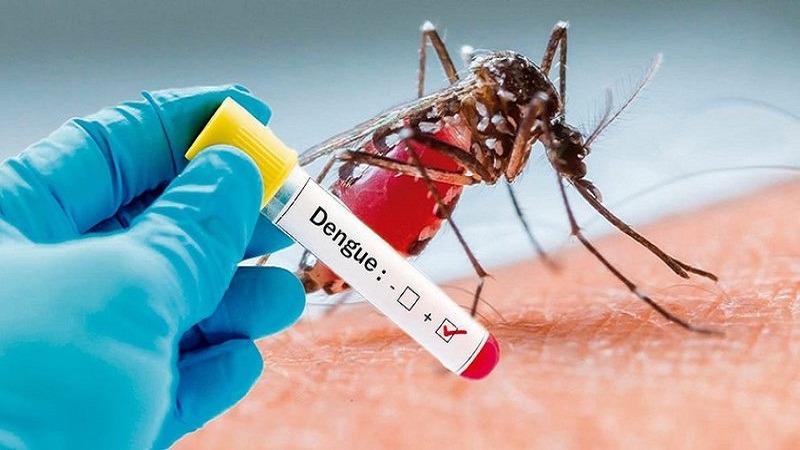
Nội dung bài viết / Table of Contents
This post is also available in: Tiếng Việt (Vietnamese)

Dengue fever is an infectious disease carried by mosquitoes and caused by any of four related dengue viruses. This disease used to be called “break-bone” fever because it sometimes causes severe joint and muscle pain that feels like bones are breaking, hence the name.
Mild dengue fever causes high fever, rash, and muscle and joint pain. A severe form of dengue fever, also called dengue hemorrhagic fever, can cause severe bleeding, a sudden drop in blood pressure (shock) and death.
Millions of cases of dengue infection occur worldwide each year. It can affect patients at any age. Dengue fever is found mostly during and shortly after the rainy season in tropical and subtropical areas of:
It can be managed by reducing your risk factors. Please discuss with your doctor for further information.
There are three types of dengue fever: classic dengue, dengue hemorrhagic fever and dengue shock syndrome.
Classic Dengue
Symptoms of typical uncomplicated (classic) dengue usually start with fever within 4 to 7 days after you have been bitten by an infected mosquito and include
The rash may appear over most of your body 3 to 4 days after the fever begins, and then subsides after 1 to 2 days. You may get a second rash a few days later.
Dengue Hemorrhagic Fever
Symptoms of dengue hemorrhagic fever include all of the symptoms of classic dengue plus
This form of dengue disease can cause death.
Dengue Shock Syndrome
Symptoms of dengue shock syndrome–the most severe form of dengue disease–include all of the symptoms of classic dengue and dengue hemorrhagic fever, plus
This form of the disease usually occurs in children (sometimes adults) experiencing their second dengue infection. It is sometimes fatal, especially in children and young adults.
There may be some signs or symptoms not listed above. If you have any concerns about a symptom, please consult your doctor.
If you have any signs or symptoms listed above or have any questions, please consult with your doctor. If you have recently visited a region in which dengue fever is known to occur and you suddenly develop a fever, see your doctor. Everyone’s body acts differently. It is always best to discuss with your doctor what is best for your situation.
Dengue fever is caused by a virus that can spread by a mosquito bite. There are four dengue viruses, each known as virus DEN-1, DEN-2, DEN-3, and DEN-4. Mosquitos that are from a specific family known as Aedes aegypti orAedes albopictus can carry the virus to infect a person’s blood by a bite and transferring the infected blood to another person. Once you have recovered from dengue fever, you may build immunity to dengue fever but only to that particular strain. There are 4 different virus strains, which means you may be infected again. It is important to identify the signs and get treatment.
There are many risk factors for (health condition), such as:
Factors that put you at greater risk of developing dengue fever or a more severe form of the disease include:
Prior infection with a dengue fever virus. Previous infection with a dengue fever virus increases your risk of having severe symptoms if you are infected again.
The information provided is not a substitute for any medical advice. ALWAYS consult with your doctor for more information.
Diagnosing dengue fever can be difficult, because its signs and symptoms can be easily confused with those of other diseases — such as malaria, leptospirosis and typhoid fever.
Your doctor will likely ask about your medical and travel history. Be sure to describe international trips in detail, including the countries you visited and the dates, as well as any contact you may have had with mosquitoes.
Certain laboratory tests can detect evidence of the dengue viruses, but test results usually come back too late to help direct treatment decisions.
There is no specific treatment for dengue fever, while most people recover within two weeks. It is important to treat the symptoms to avoid complications. Most doctors recommend the following treatment options:
For more severe cases, dengue fever can cause shock or hemorrhagic fever that requires more immediate medical attention.
Read more post:
What are some lifestyle changes or home remedies that can help me manage dengue fever?
You can manage dengue fever with home care. You will need good hydration and pain management. It is important to know a few things before traveling to areas where dengue fever is common. Here are a few tips that can help:
Reduce mosquito habitat. The mosquitoes that carry the dengue virus typically live in and around houses, breeding in standing water that can collect in such things as used automobile tires. Reduce the breeding habitat to lower mosquito populations.
If you have any questions, please consult with your doctor to better understand the best solution for you.
Sources: